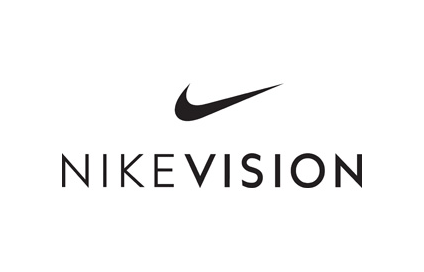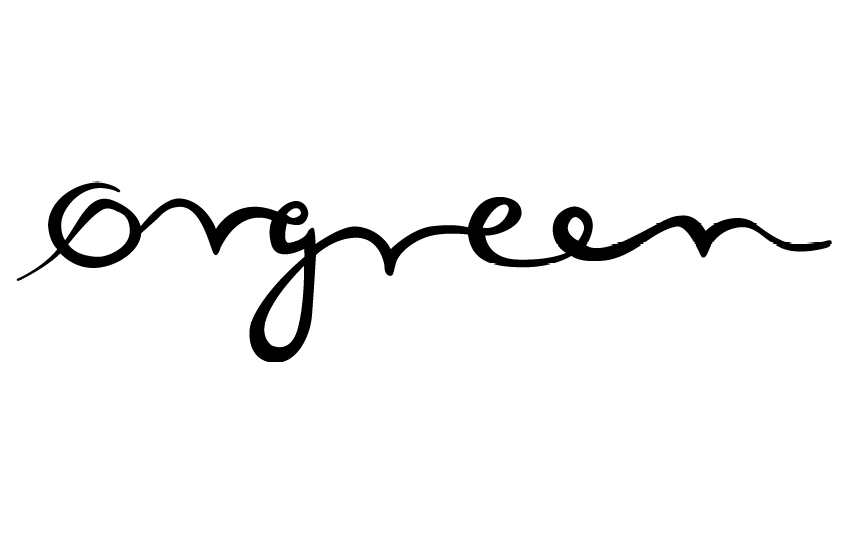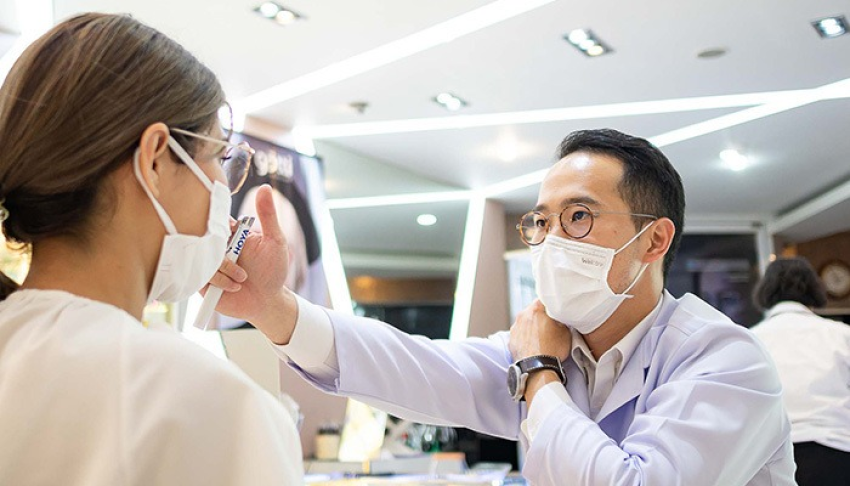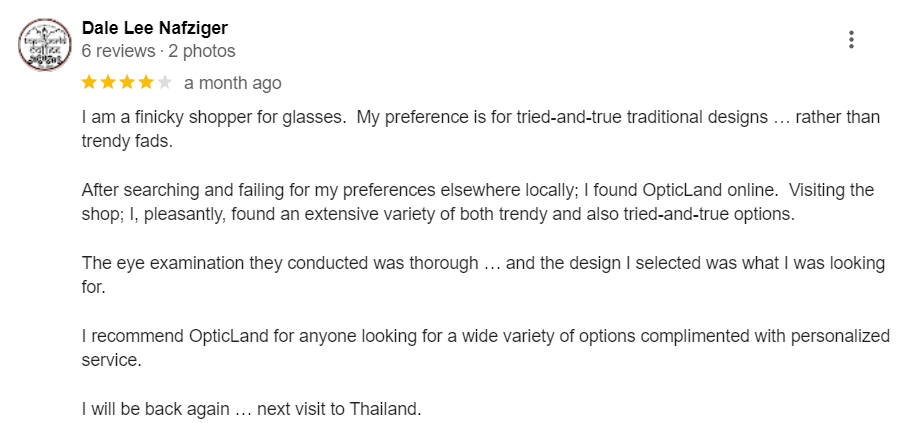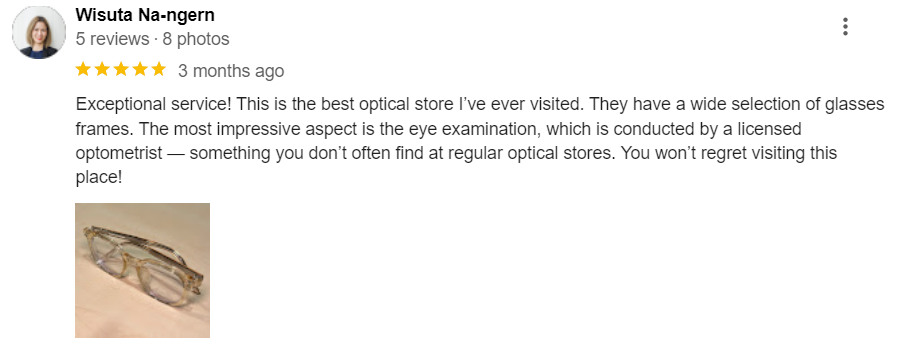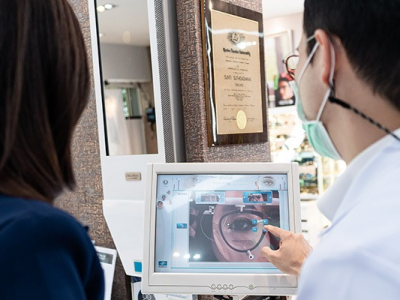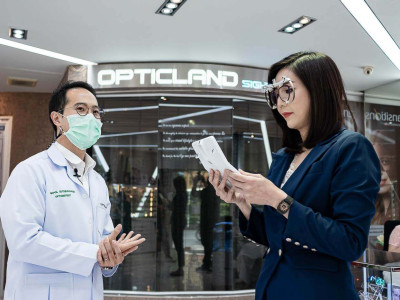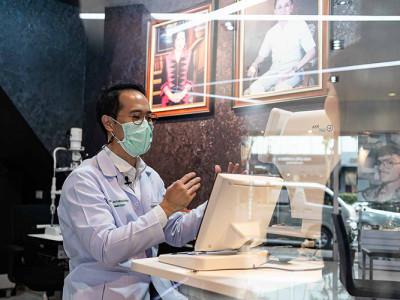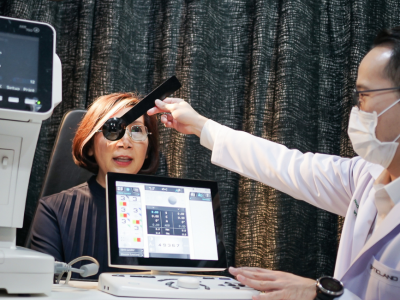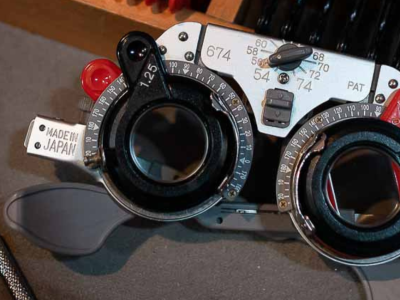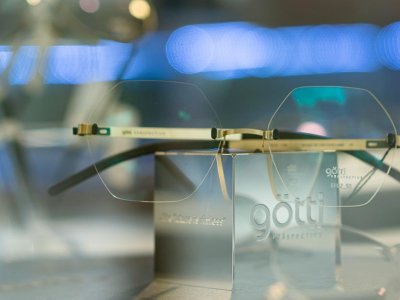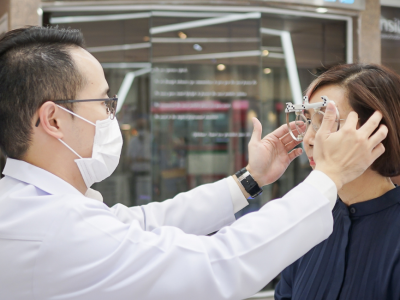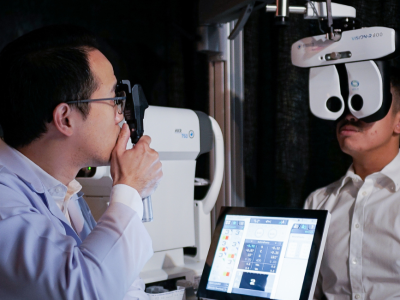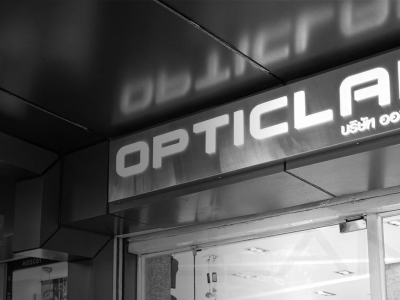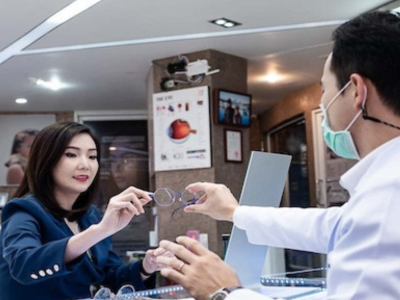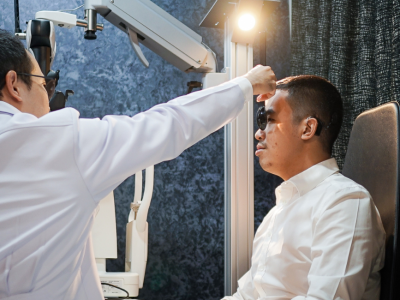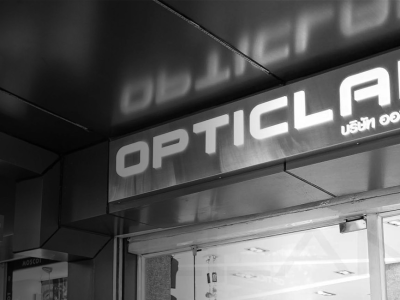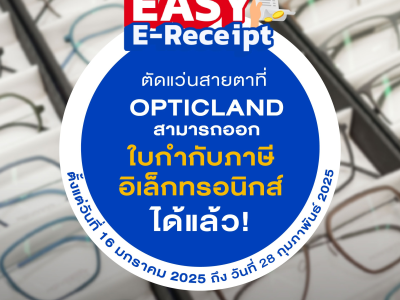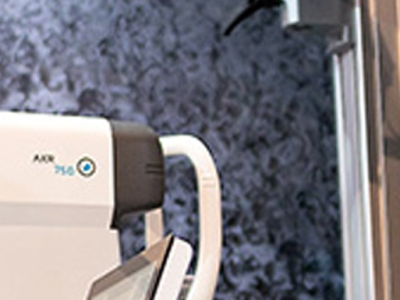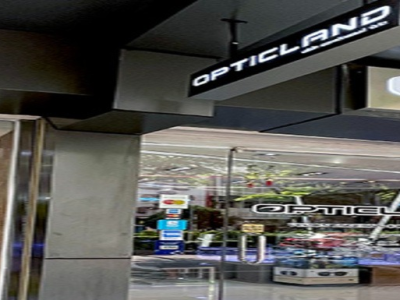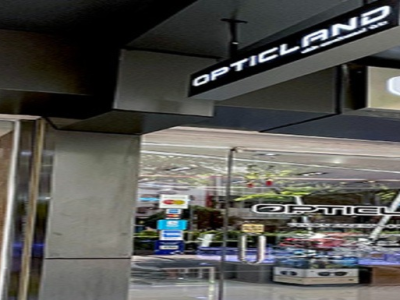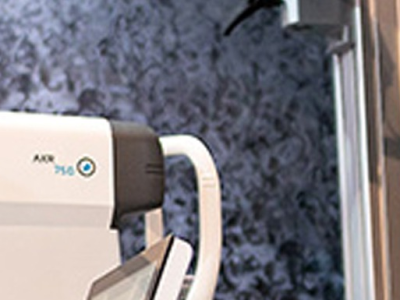Eye Test Ultimate Guide that You Need to Know for a Better Vision
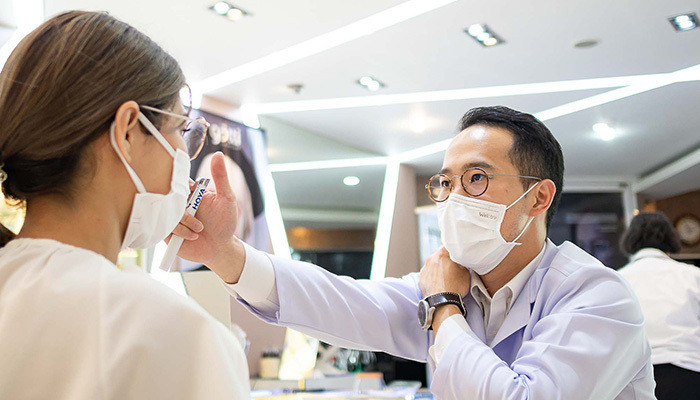
An eye test is more than just a routine check-up, it's a crucial step in maintaining optimal vision and overall eye health. Whether you’re due for a regular exam or have specific concerns about your eyesight, understanding what to expect can help you make the most of your visit. This ultimate eye test guide covers everything you need to know, from how often you should get tested and what to expect during the exam, to the broader health issues an eye test can reveal. Discover why regular eye tests are essential, especially for children, and how to recognize when it’s time for an appointment. With this comprehensive guide, you’ll be well-prepared to ensure your vision stays clear and your eyes remain healthy.
Table of Contents
What is an Eye Test and Why is it Important?
An eye test is a comprehensive examination of your vision and eye health conducted by an optometrist or ophthalmologist. It assesses your ability to see clearly, evaluates your eye coordination, and checks for any signs of eye diseases or conditions. Regular eye tests are crucial not only for maintaining optimal vision but also for detecting underlying health issues that may manifest in the eyes, such as diabetes or high blood pressure. Early detection through an eye test can prevent the progression of these conditions and ensure timely treatment.
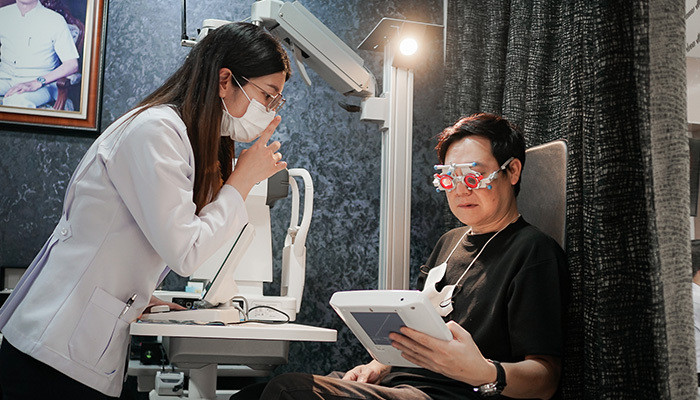
Signs You Need an Eye Test
Recognizing the signs that you need an eye test can help you maintain good eye health and vision. Common indicators include:
- Frequent Headaches: Recurring headaches, particularly those that occur after prolonged periods of reading, working on a computer, or other activities that require intense focus, may indicate that your eyes are struggling to maintain clear vision. This strain can lead to tension headaches, often starting around the temples or behind the eyes.
- Difficulty Focusing: If you find it challenging to focus on objects at different distances, such as shifting your gaze from a computer screen to a distant object, or if text becomes blurry when switching between close and far, it could be a sign of a refractive error like myopia (nearsightedness) or hyperopia (farsightedness).
- Squinting or Eye Strain: Squinting is often an unconscious attempt to improve focus and clarity by reducing the amount of light entering the eyes. If you frequently squint or feel eye strain, especially after extended periods of screen time or reading, it may indicate that your vision needs correction. Eye strain can also lead to discomfort, dryness, or a burning sensation in the eyes.
- Blurred or Double Vision: Experiencing blurred vision, where objects appear fuzzy or out of focus, or double vision, where you see two images of a single object, can be alarming. These symptoms might suggest an issue with your eye's lens, cornea, or retina, or could indicate an eye condition like astigmatism or cataracts.
- Increased Sensitivity to Light: If your eyes have become more sensitive to light, making bright lights uncomfortable or even painful, it could signal an underlying eye issue such as inflammation, an infection, or a migraine. This symptom often accompanies other vision problems and should not be ignored.
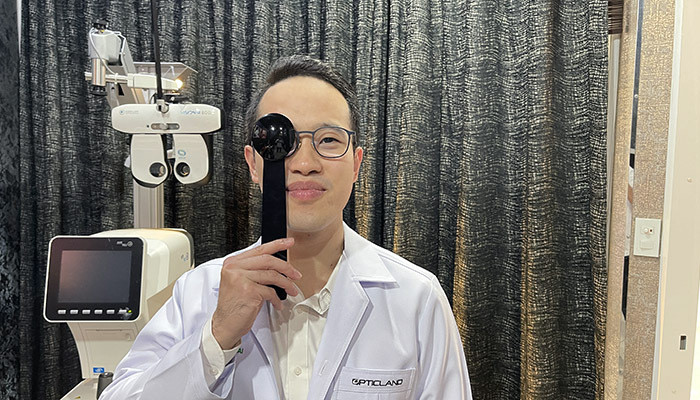
Types of Eye Tests : What to Expect During Your Visit
During your visit to have an eye test at an optical shop like Opticland, you can expect a series of eye tests designed to evaluate different aspects of your vision and eye health. These may include:
- Visual Acuity Test: Measures the clarity of your vision by having you read letters on a chart from a specific distance.
- Refraction Test: Determines your prescription for glasses or contact lenses by using a phoropter to measure how light rays bend through your eyes.
- Slit-Lamp Examination: Allows the optometrist to examine the structures of your eye, such as the cornea, iris, and lens, for any abnormalities or signs of disease.
- Tonometry: Measures the pressure inside your eye, which is vital for detecting glaucoma.
- Retinal Examination: Involves dilating your pupils to examine the retina and optic nerve for any signs of damage or disease.
How Often Should You Get an Eye Test?
You may wonder how often you should get an eye test. The frequency of eye tests depends on several factors, including your age, overall health, and whether you wear corrective lenses. Generally, adults aged 18-60 should have an eye test every two years. However, those over 60, or individuals with a history of eye problems, diabetes, or high blood pressure, may need more frequent testing. Children should have their first eye test before starting school and continue with regular tests as recommended by their optometrist.
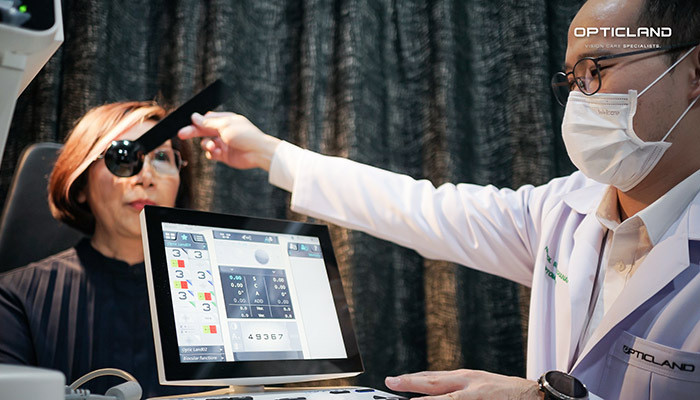
Preparing for Your Eye Test: What You Need to Know
Preparing for an eye test at Opticland involves a few simple steps to ensure accurate results.
Bring Your Eyewear to the Appointment
Bring your eyewear to the appointment, ensuring you bring any existing eyewear, including glasses or contact lenses, to your eye test. Your optometrist will need to evaluate your current prescription and see how well your existing eyewear is working for you.
Make a List of Medications
Make a list of medications by compiling a list of all medications you’re currently taking, including prescription drugs, over-the-counter medications, and supplements. Some medications can have side effects that impact your vision, such as causing dryness or blurred vision. Providing this information helps the optometrist make informed decisions about your eye health.
Discuss Vision Problems and Symptoms
Discuss vision problems and symptoms by preparing to share any vision issues you’ve noticed, such as difficulty focusing, frequent headaches, or eye strain. Include details about when these symptoms started and how often they occur. Also, discuss your family’s eye health history, particularly if there are any known hereditary conditions like glaucoma or macular degeneration. This information can guide the optometrist in tailoring your eye exam.
Prepare Any Questions or Concerns
Prepare any questions or concerns. If you have any specific concerns or questions about your eye health, write them down before your appointment. This could include questions about treatment options, new eyewear, or lifestyle changes to improve your vision. Bringing these questions with you ensures that you don’t forget to ask them during your visit, allowing you to get the most out of your appointment.
Understanding Your Eye Test Results
It is important to understand your eye test results. After your eye test, your optometrist will explain the results and discuss any necessary treatments or prescriptions. The results will indicate whether you have 20/20 vision or if you need corrective lenses to improve your sight. If any eye conditions or diseases are detected, your optometrist will outline the next steps for treatment or management. Understanding your eye test results is key to taking proactive steps in maintaining your eye health.
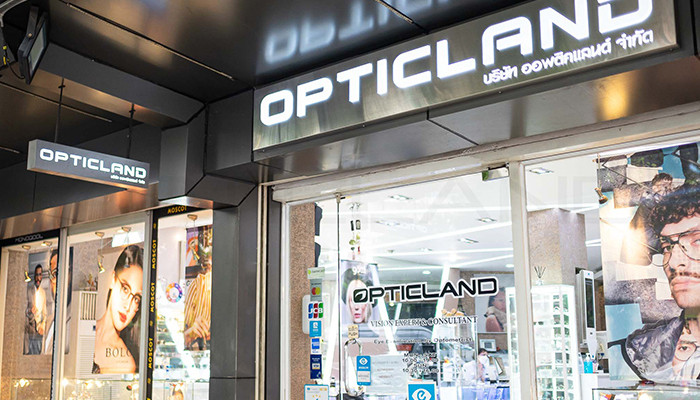
Finding the Right Optometrist for Your Eye Test at Opticland
Choosing the right optometrist is essential for a thorough and comfortable eye test experience. At Opticland, our team of qualified and experienced optometrists is dedicated to providing personalized care tailored to your needs. We utilize state-of-the-art equipment and the latest techniques to ensure accurate diagnoses and effective treatments. Whether you need a routine eye test or specialized care, you can trust Opticland to deliver the highest standard of service.
Optometrist's Profile
Opticland offers services through skilled and approachable optometrists who go beyond simply prescribing accurate eyeglasses. Our optometrists understand that a perfect pair of glasses is not just about clear vision but it’s also about comfort and fitting seamlessly into your lifestyle.

Napol Suthidechanai
Mr. Napol Suthidechanai is the son of the founder of OPTICLAND. He graduated from the Faculty of Optometry at Ramkhamhaeng University and the Faculty of Engineering, Department of Industrial Engineering Chulalongkorn University. He has internship experience and work experience as follows:
- Essilor Manufacturing (Thailand) Global Engineering Department: 2011-2014
- OPTICLAND: 2014-present
- Launched an eye examination unit together with Lion at Nakhon Si Thammarat Province (2017)
- Guest lecturer in the Business Mindfulness and Care clinic project in the health category of BNI Thailand (2022)

Yonthida Leela
A Top-Class Optometrist, Yonthida Leela graduated from the Faculty of Optometry at Ramkhamhaeng University. She has internship experience and work experience as follows:
- Police Hospital (2021)
- Eyeglasses shop MAWIN VISION (2021)
- THE VISION OPTIC 2021 eyeglasses shop
- Part-time at eyeglasses shop MAWIN VISION 2020
- Seecret eyeglasses shop (2021)
- Joined the line measurement unit with Lion at Ban Ko School, Bangkok (2019)

Nutthanan Sakulchaiwattana
Another Top-Class, Nutthanan Sakulchaiwattana graduated from the Faculty of Optometry Ramkhamhaeng University (Second class honor). She has internship experience and work experience as follows:
- OPTICLAND eyeglasses shop
- Johnson & Johnson Vision Company Thailand
- Part-time at WALTZ eyeglasses shop
- Bridder Eyeglasses Shop
- Niche Nation Eyeglasses Shop
Reviews from Clients
FAQs
How often should you get an eye test?
Regular eye tests are crucial for maintaining optimal eye health. How often should you get an eye test? Generally, adults should have an eye test every one to two years, depending on their age, vision needs, and risk factors. Those with existing eye conditions or a family history of eye diseases may need more frequent tests.
What should you expect during an eye test?
What should you expect during an eye test? During an eye test, your optometrist will evaluate your vision, check for refractive errors (like nearsightedness or farsightedness), and assess the overall health of your eyes. This usually involves reading charts, testing peripheral vision, measuring eye pressure, and examining the internal and external structures of your eyes.
Can an eye test detect health issues beyond vision problems?
Can an eye test detect health issues beyond vision problems? The answer is yes. An eye test can reveal signs of other health issues, such as diabetes, high blood pressure, and even certain cancers. The eyes are often a window to overall health, and changes in your eyes can be indicators of systemic conditions.
At what age should children start getting regular eye tests?
At what age should children start getting regular eye tests? Children should have their first comprehensive eye test at around six months of age, with follow-up tests at age three and before starting school. After that, regular eye tests every one to two years are recommended, especially if they show signs of vision problems.
How do you know if you need an eye test?
You may need an eye test if you experience symptoms such as frequent headaches, difficulty focusing, squinting, blurred vision, or eye strain. Other signs include increased light sensitivity, seeing halos around lights, or any sudden changes in vision. Regular eye tests are also important for maintaining eye health, even if you don’t notice any issues.









